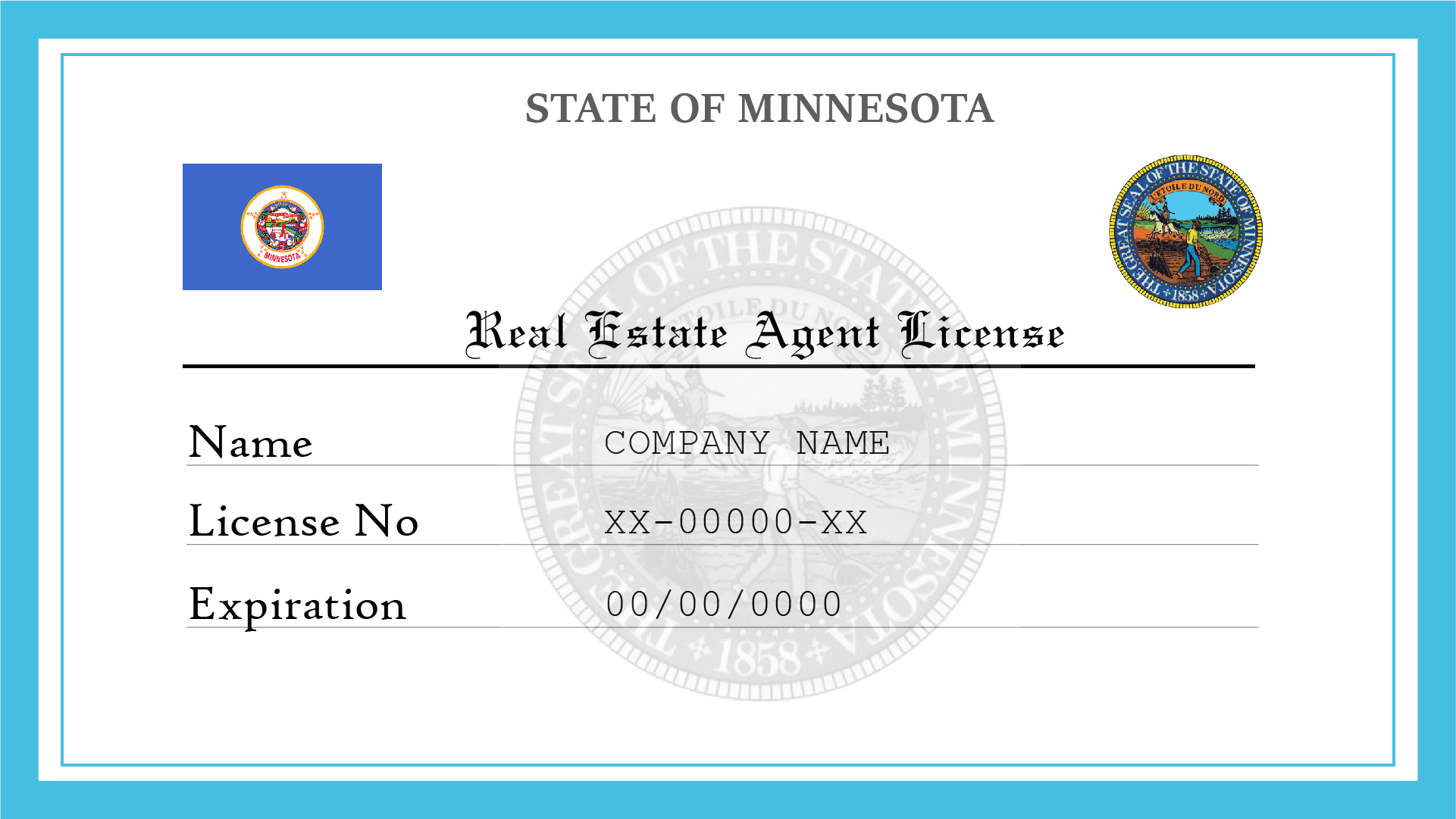
A real estate license is a document that the state issues to identify an individual as a licensed professional within the field of real-estate. This certification is usually achieved through a combination education and testing. There are many ways to obtain a real estate license. Before you decide to apply, make sure to thoroughly research your jurisdiction's requirements.
What Is a Real Estate License?
A realty license offers many benefits for agents and brokers, such as access to new business opportunities or risk-minimization. You can also boast about your status as a real-estate professional, which can help you gain an edge over investors and agents in the field.
Obtaining Your Real Estate License
You must pass the state licensing exam to obtain a license in real estate. The exam is divided into two parts. One part covers federal realestate laws and general realestate principles. The second section covers state-specific law. Candidates who have been licensed for a long time will typically take the first section, while new licensees will likely take the second part.

It can be hard to pass the exam, especially if you are applying for your first real-estate license. Take an online course or go to classes in person at a college or university to prepare. Practice tests are available from many real estate courses. These can be helpful in getting to know the material and prepare you for the actual exam.
Why Get a Real Estate License?
A real estate license can be a great way to make money. As a licensed real estate agent, you'll earn a commission on any sale or purchase made by your clients. Referring agents to you will earn you a finder’s fee. This is a great way to make extra income in your spare time.
What you should know about obtaining your Real Estate License
Although the process for obtaining a license to be a real-estate agent varies from one state to another, most states require that you have a criminal record checked, a high school diploma and some education before you can begin. Depending on where you live, some states may require that you disclose any criminal convictions.
Pre-licensing education should be completed for at least 45 hours before you can take state exams. This coursework should cover national and local real estate principles and laws, as well as math courses that will prepare you for the exam. You can choose to take classes at a community college, a public university or online college.

Take Online Classes
A real estate license offers another benefit: you can learn at the pace that suits your needs. This means you can squeeze your classes into your daily life, which can increase your retention rate and help you prepare for the exam.
A good online course can help you to ace the exam and get started on your new career in no time! RealEstateU provides everything you need in order to pass the state exam, and you can start your real-estate career immediately.
FAQ
Is it cheaper to rent than to buy?
Renting is typically cheaper than buying your home. However, renting is usually cheaper than purchasing a home. You also have the advantage of owning a home. You will have greater control of your living arrangements.
How do I eliminate termites and other pests?
Termites and many other pests can cause serious damage to your home. They can cause severe damage to wooden structures, such as decks and furniture. This can be prevented by having a professional pest controller inspect your home.
What should you consider when investing in real estate?
It is important to ensure that you have enough money in order to invest your money in real estate. If you don’t save enough money, you will have to borrow money at a bank. It is also important to ensure that you do not get into debt. You may find yourself in defaulting on your loan.
You must also be clear about how much you have to spend on your investment property each monthly. This amount must be sufficient to cover all expenses, including mortgage payments and insurance.
It is important to ensure safety in the area you are looking at purchasing an investment property. It would be a good idea to live somewhere else while looking for properties.
How many times can I refinance my mortgage?
It depends on whether you're refinancing with another lender, or using a broker to help you find a mortgage. Refinances are usually allowed once every five years in both cases.
How long does it take to sell my home?
It all depends on several factors such as the condition of your house, the number and availability of comparable homes for sale in your area, the demand for your type of home, local housing market conditions, and so forth. It can take anywhere from 7 to 90 days, depending on the factors.
Can I get another mortgage?
Yes. But it's wise to talk to a professional before making a decision about whether or not you want one. A second mortgage is often used to consolidate existing loans or to finance home improvement projects.
Statistics
- When it came to buying a home in 2015, experts predicted that mortgage rates would surpass five percent, yet interest rates remained below four percent. (fortunebuilders.com)
- Over the past year, mortgage rates have hovered between 3.9 and 4.5 percent—a less significant increase. (fortunebuilders.com)
- Based on your credit scores and other financial details, your lender offers you a 3.5% interest rate on loan. (investopedia.com)
- Private mortgage insurance may be required for conventional loans when the borrower puts less than 20% down.4 FHA loans are mortgage loans issued by private lenders and backed by the federal government. (investopedia.com)
- Some experts hypothesize that rates will hit five percent by the second half of 2018, but there has been no official confirmation one way or the other. (fortunebuilders.com)
External Links
How To
How to manage a rental property
Although renting your home is a great way of making extra money, there are many things you should consider before you make a decision. We'll help you understand what to look for when renting out your home.
Here's how to rent your home.
-
What should I consider first? Take a look at your financial situation before you decide whether you want to rent your house. If you have any debts such as credit card or mortgage bills, you might not be able pay for someone to live in the home while you are away. Also, you should review your budget to see if there is enough money to pay your monthly expenses (rent and utilities, insurance, etc. It may not be worth it.
-
How much does it cost to rent my home? It is possible to charge a higher price for renting your house if you consider many factors. These include factors such as location, size, condition, and season. Prices vary depending on where you live so it's important that you don't expect the same rates everywhere. Rightmove reports that the average monthly market price to rent a one-bedroom flat is around PS1,400. This would translate into a total of PS2,800 per calendar year if you rented your entire home. It's not bad but if your property is only let out part-time, it could be significantly lower.
-
Is this worth it? You should always take risks when doing something new. But, if it increases your income, why not try it? It is important to understand your rights and responsibilities before signing anything. Renting your home won't just mean spending more time away from your family; you'll also need to keep up with maintenance costs, pay for repairs and keep the place clean. You should make sure that you have thoroughly considered all aspects before you sign on!
-
Are there any benefits? You now know the costs of renting out your house and feel confident in its value. Now, think about the benefits. There are many reasons to rent your home. You can use it to pay off debt, buy a holiday, save for a rainy-day, or simply to have a break. Whatever you choose, it's likely to be better than working every day. And if you plan ahead, you could even turn to rent into a full-time job.
-
How do I find tenants? Once you've decided that you want to rent out, you'll need to advertise your property properly. Listing your property online through websites like Rightmove or Zoopla is a good place to start. After potential tenants have contacted you, arrange an interview. This will help you assess their suitability and ensure they're financially stable enough to move into your home.
-
How do I ensure I am covered? If you are worried about your home being empty, it is important to make sure you have adequate protection against fire, theft, and damage. You will need insurance for your home. This can be done through your landlord directly or with an agent. Your landlord will often require you to add them to your policy as an additional insured. This means that they'll pay for damages to your property while you're not there. However, this doesn't apply if you're living abroad or if your landlord isn't registered with UK insurers. In this case, you'll need to register with an international insurer.
-
Sometimes it can feel as though you don’t have the money to spend all day looking at tenants, especially if there are no other jobs. Your property should be advertised with professionalism. Make sure you have a professional looking website. Also, make sure to post your ads online. A complete application form will be required and references must be provided. Some people prefer to do the job themselves. Others prefer to hire agents that can help. In either case, be prepared to answer any questions that may arise during interviews.
-
What happens after I find my tenant?After you've found a suitable tenant, you'll need to agree on terms. If there is a lease, you will need to inform the tenant about any changes such as moving dates. If you don't have a lease, you can negotiate length of stay, deposit, or other details. You should remember that although you may be paid after the tenancy ends, you still need money for utilities.
-
How do you collect rent? When it comes time for you to collect your rent, check to see if the tenant has paid. If they haven't, remind them. You can subtract any outstanding rent payments before sending them a final check. You can call the police if you are having trouble getting hold of your tenant. They won't normally evict someone unless there's been a breach of contract, but they can issue a warrant if necessary.
-
How can I avoid problems? Renting out your house can make you a lot of money, but it's also important to stay safe. Install smoke alarms, carbon monoxide detectors, and security cameras. You should also check that your neighbors' permissions allow you to leave your property unlocked at night and that you have adequate insurance. You must also make sure that strangers are not allowed to enter your house, even when they claim they're moving in the next door.